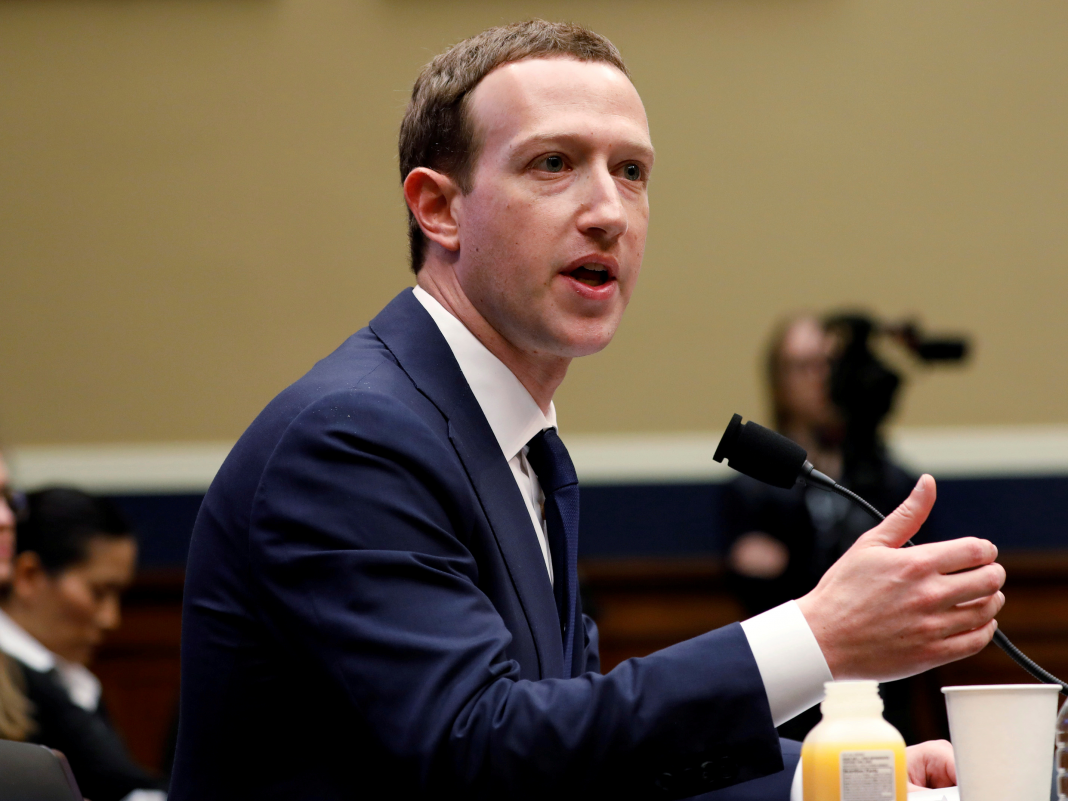- Facebook stated it concurred with the Federal Communications Commission’s guidelines for broadcast stations– which are needed to run all advertisements from political prospects– in a public spat with Elizabeth Warren over its choice to permit advertisements consisting of incorrect details from Donald Trump.
- The FCC controls broadcast stations in the general public interest, and these networks have specific arrangements versus providing incorrect details.
- Facebook is under no such guidelines, and it is not responsible for published material, as secured by Area 230 of the Communications Decency Act.
- Nevertheless, professionals state Facebook might one day deal with a comparable set of guidelines as broadcast stations, as FCC Chairman Ajit Pai and bipartisan leaders have actually revealed a strong desire to present guideline.
- Go to Company Expert’s homepage for more stories.
What is Facebook? Depending upon where and when it’s asked, in some cases it’s a publisher, and in some cases it’s a platform.
However in its most current debate– the choice to not fact-check advertisements from political leaders– Facebook is placing itself as a lot of like a broadcast station.
— Facebook Newsroom (@fbnewsroom) October 12, 2019
Federal Interaction Commission guidelines state that broadcast stations– the regional TELEVISION or radio stations that are typically network affiliates– need to accept advertisements from political prospects, regardless if they hold true or incorrect. Broadcast stations are categorized independently from cable television networks, who have discretion; CNN picked not to run the Trump advertisement in concern since it had actually been shown incorrect.
According to Philip Napoli, the author of “Social network and Public Interest: Media Guideline in the Disinformation Age,” courts have actually traditionally ruled in favor of counterspeech when it concerns advertisements from political leaders. Rather of removing incorrect advertisements, which has actually been considered as censorship, the federal government usually lets political leaders release all advertisements, thinking that the general public will make an affordable choice on who to elect.
Likewise, Facebook has actually stated it does not think it must “avoid a politcian’s speech from reaching its audience and undergoing public argument and analysis.” For both the FCC and Facebook, the option to incorrect speech is typically thought about to be more speech, it appears.
” Facebook is imitating a broadcast station in this case,” Napoli informed Company Expert. “The paradox, obviously, is that there is no current guideline that uses to them.”
What if the FCC controlled Facebook?
The FCC controls broadcast stations in the general public interest. Those guidelines have specific arrangements versus providing incorrect details, to name a few prolonged guidelines and standards
However Facebook undergoes no such guideline– it usually follows whatever guidelines it wishes to– and it is not responsible for any material published by means of the service, as secured by Area 230 of the Communications Decency Act. If Facebook were really a broadcast station, it would undergo FCC guideline.
— Edmund Lee (@edmundlee) October 13, 2019
Still, the FCC is rather restricted in media guideline, as it can not usually infringe on the totally free press rights ensured by the First Modification of the United States Constitution. However there are exceptions.
According to Napoli, the most typical exception made is when there are ramifications for the general public interest. For instance, the FCC can manage broadcast stations since they utlilize the broadcast spectrum, which is thought about a public resource that is “owned by the individuals.”
Presently, this public interest structure isn’t used to social networks. However Napoli argues that Facebook is likewise developed on a public resource– our user information– and it’s the only factor Facebook has actually had the ability to get a lot impact in the very first location.
If Facebook is powered by this public resource, should not it be controlled in the general public interest? This is how the FCC controls broadcast stations, and Facebook is plainly imitating one in this case.
Naturally, it would take a lot to implement these guidelines. The United States presently does not have any warranty of private rights to their user information, and it appears like an even more dive to acknowledge aggregated user information as a public resource.
However it’s a practical argument, and FCC Chairman Ajit Pai has actually likewise recommended guideline, calling out business like Facebook at a hearing in June
” The best risk to a totally free and open web has actually been the uncontrolled Silicon Valley tech giants that do, in reality, today choose what you see and what you do not. There’s no openness. There’s no customer defenses and I believe bipartisan members of both congressional chambers have actually now pertained to that awareness.”
The FCC and Facebook did not right away react to ask for remark.
The majority of the calls for managing Facebook, consisting of Democratic governmental prospect Elizabeth Warren’s, are from an antitrust point of view– Facebook must be separated since it is too huge and damages competitors, she argues.
While this guideline might likewise be essential, Napoli mention another issue totally. The FCC’s existing guidelines are totally inadequate for social networks, and our society remains in alarming requirement of an upgrade, he states.
” We have actually simply never ever had interactions platforms running on this scale, by a long shot,” Napoli stated. “And we have this odd patchwork of guidelines that ends up being more fragmented each time a brand-new innovation ends up being more vital.”









